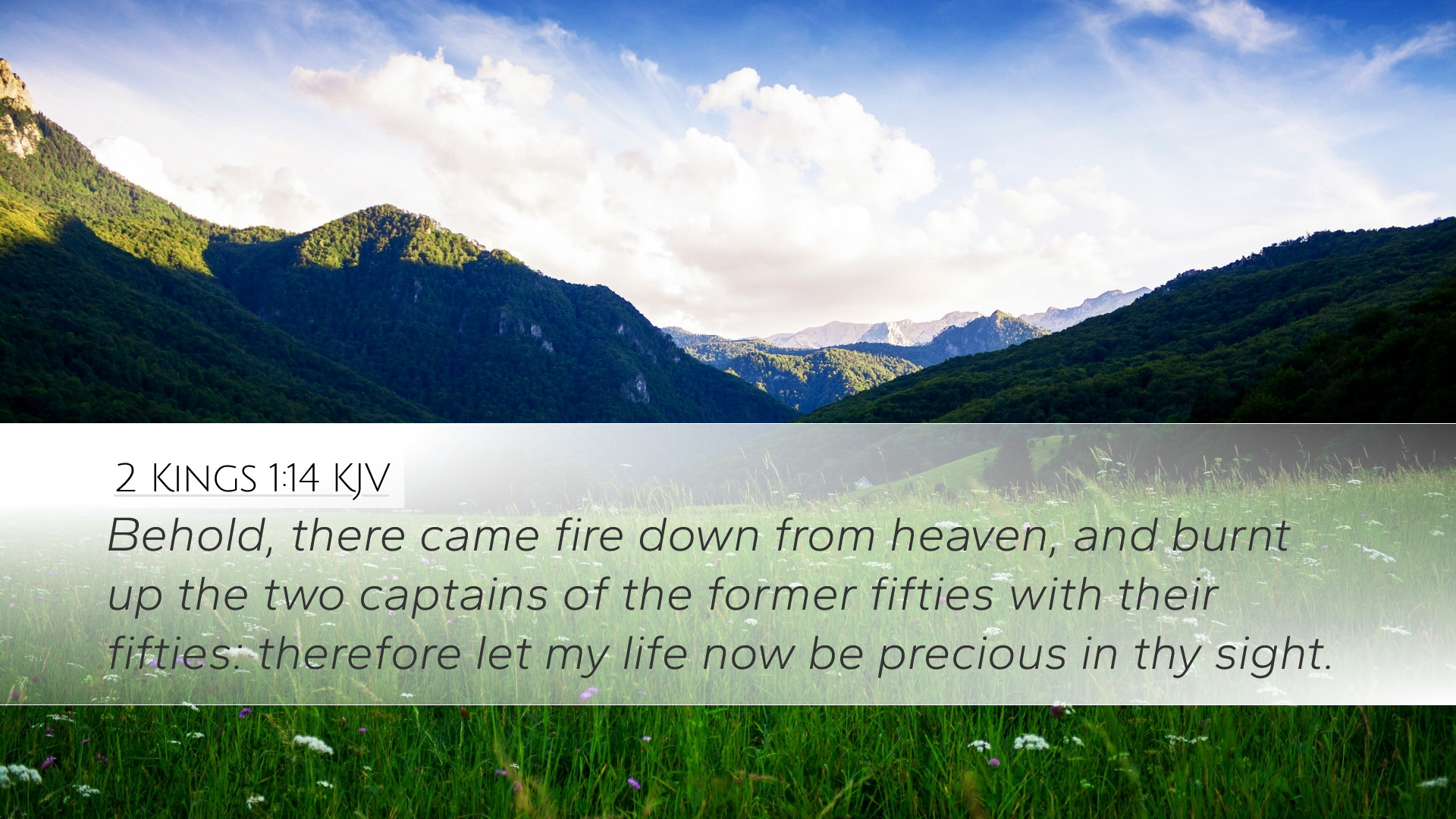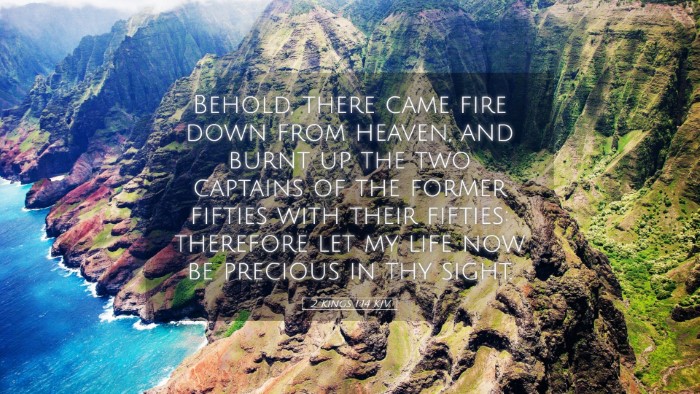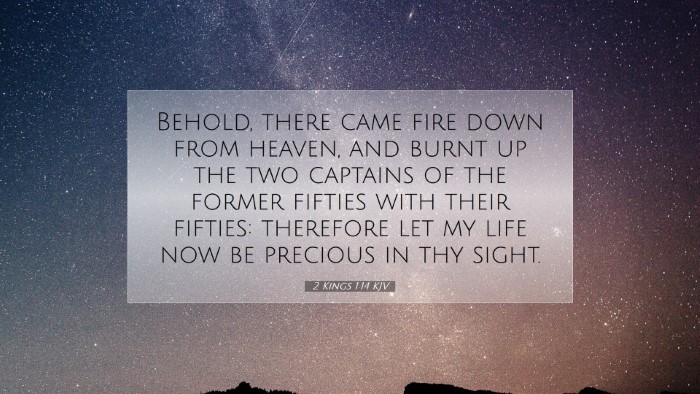Old Testament
Genesis Exodus Leviticus Numbers Deuteronomy Joshua Judges Ruth 1 Samuel 2 Samuel 1 Kings 2 Kings 1 Chronicles 2 Chronicles Ezra Nehemiah Esther Job Psalms Proverbs Ecclesiastes Song of Solomon Isaiah Jeremiah Lamentations Ezekiel Daniel Hosea Joel Amos Obadiah Jonah Micah Nahum Habakkuk Zephaniah Haggai Zechariah Malachi2 Kings 1:14
2 Kings 1:14 KJV
Behold, there came fire down from heaven, and burnt up the two captains of the former fifties with their fifties: therefore let my life now be precious in thy sight.
2 Kings 1:14 Bible Commentary
Commentary on 2 Kings 1:14
Verse: "Behold, there came fire down from heaven, and consumed the two captains of the former fifties with their fifties: therefore let my life now be precious in thy sight."
Contextual Background
The passage in question occurs during a tumultuous period in Israel's history, marked by the reign of King Ahaziah, who sought counsel from Baal-zebub rather than Yahweh. The context of 2 Kings 1 highlights the conflict between the authority of the prophet Elijah and the apostasy of Israel’s leadership. The king sends troops to retrieve the prophet, whose counsel he rejected, highlighting the spiritual and moral decline of his reign.
Theological Insights
The verse encapsulates a significant moment, revealing God's sovereignty and power over false worship and idolatrous practices. The consuming fire from heaven symbolizes divine judgment and serves as a stark reminder of God's holiness and the gravity of disobedience.
Commentary Insights
-
Matthew Henry:
Henry asserts that the fire coming down signifies God's immediate response to the affront against His prophet. He underscores the contrast between Elijah, who represents divine authority, and the captains who represent human rebellion. Henry emphasizes the lesson that those who oppose God's chosen messengers bring upon themselves divine retribution.
-
Albert Barnes:
Barnes notes the severity of the judgment faced by the captains, interpreting the fire as a direct punishment from God. He points out that this was a miraculous sign showing the impotence of the king’s power in resisting God's will. According to Barnes, this event should compel believers to recognize the seriousness of their actions when opposing God’s plan.
-
Adam Clarke:
Clarke provides a thorough examination of the historical implications of the fire from heaven, suggesting that it served to encourage the faithful and intimidate God’s adversaries. His analysis draws attention to the significance of Elijah’s prophetic authority and the need for reliance on God rather than human strength, as exemplified by the king’s failed attempts to subdue the prophet.
Moral and Ethical Reflections
The events surrounding this verse pose profound ethical questions for leaders and believers today. The captains' request to bring Elijah back can be seen as emblematic of the human tendency to manipulate circumstances for personal gain. One must consider whether their actions are rooted in genuine submission to God's will or in the pursuit of self-interest.
Practical Applications
This passage, particularly verse 14, encourages modern pastors and theologians to reflect upon the importance of reverence for God’s authority in their ministries. It embodies the principle that seeking God’s guidance must precede any action, especially in leadership roles. Moreover, it emphasizes the need for discernment when dealing with spiritual matters, urging believers to align themselves with God’s purpose and authority.
Conclusion
2 Kings 1:14 serves as a powerful reminder of God's dominion over earthly powers and the consequences of human rebellion against divine commands. It challenges its readers—pastors, students, and theologians alike—to evaluate their allegiance to God’s will and the importance of supporting His chosen servants. As we reflect on this narrative, may we be moved to deepen our understanding of God’s righteousness, embracing the profound truth that our lives, like those of Elijah and the captains, are indeed precious in His sight.


